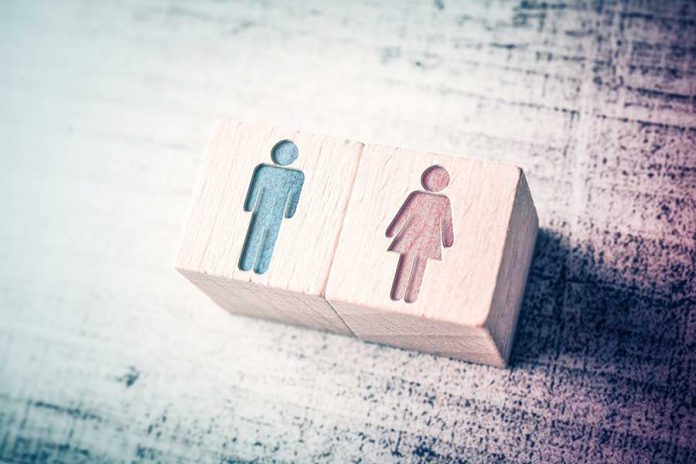“Do I contradict myself?
Very well then I contradict myself,
(I am large, I contain multitudes.)”
— Walt Whitman “Song of Myself.”
I find myself grappling with an unusual contradiction — one I find that, for me, has somewhat unique challenges that make finding a satisfying answer difficult.
Over the last few years, a movement has been afoot. Initially started by trans and nonbinary activists, non-trans allies have now also took up the mantle with a push to include pronouns in introductions, online biographies and elsewhere.
Some events provide stickers and buttons where one can easily declare that their pronouns are “she/her,” “they/them,” “zie/hir,” “he/him” and so on.
The goal of all this is simple: By normalizing the practice of asking and/or declaring pronouns for everyone, transgender and nonbinary people will not feel othered when they need to provide (or are asked about) their pronouns.
Normalizing asking for pronouns seem like a good idea to me. I’ve been in plenty of awkward situations, as a trans woman, where someone asks about my pronouns, or where I have had to assert my pronouns of choice — she/her/hers, for those who might be wondering. By having everyone declare their pronouns upfront, we all have a level playing field from the get-go, and we’re all included in the process.
That’s good, right?
Well, maybe.
I lived a lie for many years, having to present in a gender that did not fit me. During those years, a completely different set of pronouns were applied to me, and those pronouns stood for everything wrong with how I was seen in the world.
I transitioned some time ago. I feel largely accepted by those within my gender, and all the years of sweat and toil — not to mention medical bills — have paid off. For the most part, everyone can finally see the person I always knew I was, without having to second guess.
That, to me, is a big deal. Today — most of the time — everyone is on the same page as to who I am.
So, it feels awkward and uncomfortable when I find myself in a position where, after all these years, I still have to clarify my pronouns for people. I want to say scream, “Isn’t it obvious?” when asked, as I was for decades, what my pronouns are.
I have to remind myself that those asking mean well and don’t mean to cause pain. They may not know the years when such a question had a sharpened edge, was wielded against me in challenge. The “wrong” answer back then would leave me open to mockery and derision, and could be a source of pain.
In this way, the ideas behind asking one’s pronouns can have the exact opposite effect of what many hope to achieve with the upfront question. Rather than a tool of affirmation designed to prevent me from feeling “othered,” it singles me out with laser-like precision, revealing any self-perceived shortcoming. It becomes fuel for any lingering dysphoria I may yet hold onto.
That’s bad, right?
It’s hard to say.
This notion of asking for pronouns, while catching on, is still new. It is not yet a normalized practice.
One worry I have is that this is all a trend in some circles, like a transgender-flag colored”ribbon magnet,” where one can show they are a good ally without doing anything of substance to help nonbinary and transgender people. I worry it may be yet another example of people doing the literal least they can to try to bring true acceptance of trans and nonbinary people to the world.
I am sure, too, that it’s even less a part of culture outside of the relatively progressive circles I tend to run in. It may be a lot less common in parts of the country and world that still feel that men are from Mars and women from Venus, or whatnot.
In those places, I suspect that most non-trans men and women might be offended by such a question. They likely react negatively, as if you should be able to tell by their appearance, their name and their actions precisely what their pronouns are.
In short, they — like me — might find themselves responding to any inquiry about their pronouns with frustration. They might exclaim just as vehemently as me that their gender should be obvious.
In short, this becomes all so very complicated — but that’s OK.
If the goal is to normalize the process, then I, too, need to be part of that normalization process. I am not giving up any hard-won right to my gender by declaring my pronouns, no more than any non-transgender person is giving up anything of their own by maintaining the same. We are merely giving voice to what is, to ourselves, obvious.
Do I know if declaring pronouns is ever going to be routinely accepted? Of course not. It may not even be something I’ll see in my lifetime, given that people still fight over gender-neutral terms like “flight attendant” and gender-specific dress codes. These are fights I’ve seen since the 1970s, and I’m sure date back, in one form or another, much, much further.
Is asking pronouns good? Is it bad?
I don’t know. It might be both. It could even be neither. I simply do not have an answer I am entirely happy with.
All I can say is this: it all seems worthwhile to explore. We can only learn by trying.
Gwen Smith has grown accustomed to her pronouns. You’ll find her at www.gwensmith.com
